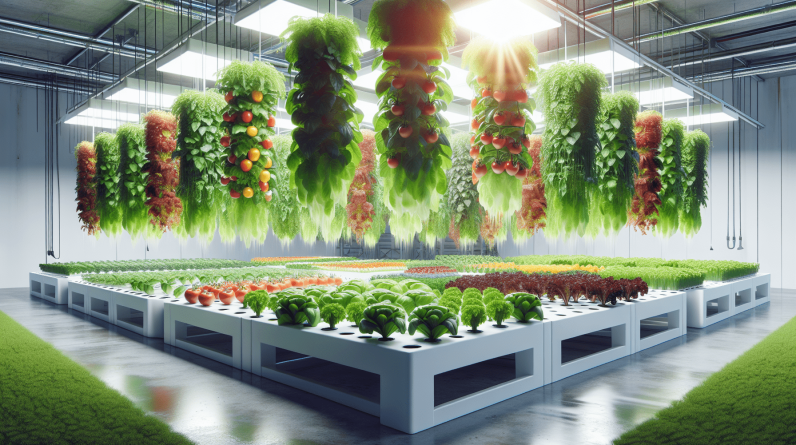
Have you ever wondered why hydroponic vegetables are gaining popularity in the world of healthy eating? In this article, we will explore the numerous advantages of hydroponic growing systems and why they may be the future of nutritious and sustainable food production. Let’s dive into the world of hydroponics and discover why these innovative gardening methods are worth considering for your health and well-being.
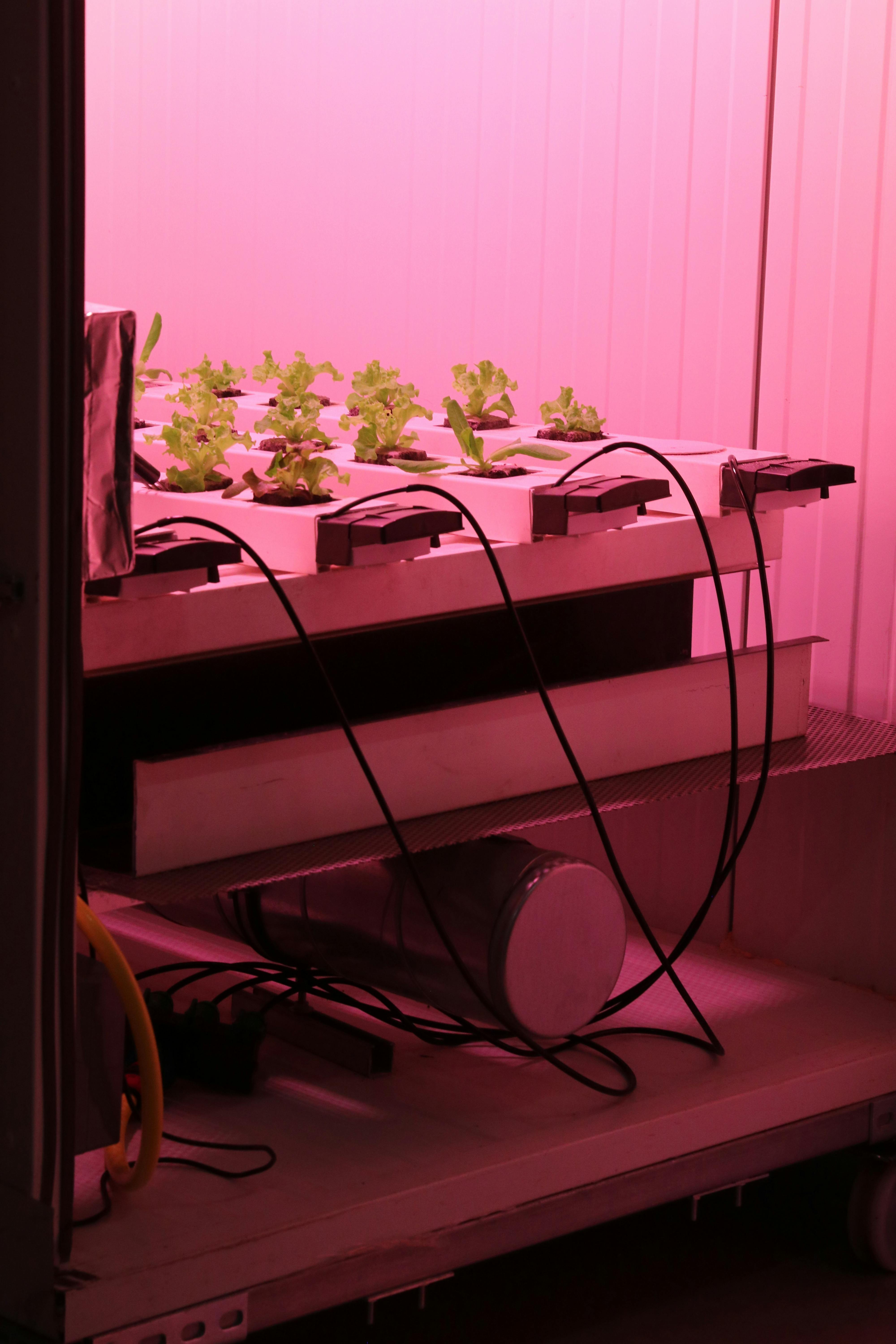
Understanding Hydroponic Growing Systems
Hydroponics is a method of growing plants without soil, using a nutrient-rich water solution to deliver essential minerals directly to the plant’s roots. By eliminating the need for soil, plants can focus their energy on growth and produce higher yields in a controlled environment. This innovative approach to gardening offers numerous benefits that make it an attractive option for those looking to grow their own fresh, healthy vegetables.
Benefits of Hydroponic Growing Systems
When you choose to grow vegetables hydroponically, you are opting for a more efficient and sustainable method of cultivation. By providing plants with precise amounts of nutrients and water, hydroponic systems can accelerate growth rates and yield larger harvests compared to traditional soil-based gardening methods. Additionally, the controlled environment of hydroponics reduces the risk of pests and diseases, resulting in healthier plants without the need for harmful chemicals or pesticides.
Water Conservation in Hydroponic Systems
One of the most significant advantages of hydroponic gardening is its ability to conserve water more effectively than traditional soil cultivation methods. Hydroponic systems use up to 90% less water than conventional gardening practices, as water is recirculated within the system rather than being lost through runoff or evaporation. This efficient use of water makes hydroponics a sustainable option for growing vegetables in regions facing water scarcity or drought conditions.
Comparing Water Usage in Hydroponics and Traditional Gardening
To put the water-saving benefits of hydroponics into perspective, consider the following comparison:
| Gardening Method | Water Usage (liters/m2) |
|---|---|
| Hydroponics | 20-25 |
| Traditional Gardening | 250-300 |
As you can see, hydroponic systems offer a significant reduction in water usage, making them an environmentally friendly choice for growing vegetables.
Year-Round Cultivation with Hydroponics
Another key advantage of hydroponic growing systems is their ability to enable year-round cultivation, regardless of external weather conditions. By controlling factors such as temperature, light, and humidity, hydroponic growers can create an optimal environment for plant growth at any time of the year. This flexibility allows for a consistent and reliable supply of fresh vegetables, even in regions with harsh climates or limited growing seasons.
Benefits of Year-Round Cultivation
The ability to grow vegetables year-round offers several advantages, including:
- Consistent access to fresh produce
- Reduced reliance on seasonal availability
- Greater control over crop production schedules
- Increased self-sufficiency in food production
With hydroponics, you can enjoy a steady supply of homegrown vegetables throughout the year, ensuring that you always have access to nutritious and flavorful produce.
Enhanced Plant Health and Nutrition in Hydroponics
Hydroponic growing systems promote healthier plants by providing a well-balanced nutrient solution directly to the roots, ensuring that plants receive all the essential minerals they need to thrive. This results in stronger, more resilient plants that are less vulnerable to diseases and pests commonly found in soil-based cultivation. Additionally, hydroponic vegetables are often more nutrient-dense due to the precise control over nutrient delivery, offering consumers a healthier and more nutritious option for their diets.
Nutritional Benefits of Hydroponic Vegetables
Studies have shown that hydroponically grown vegetables may contain higher levels of certain vitamins and minerals compared to conventionally grown produce. By optimizing nutrient uptake and delivery, hydroponic systems can enhance the nutritional quality of vegetables, providing consumers with a nutrient-rich source of fresh, flavorful produce.
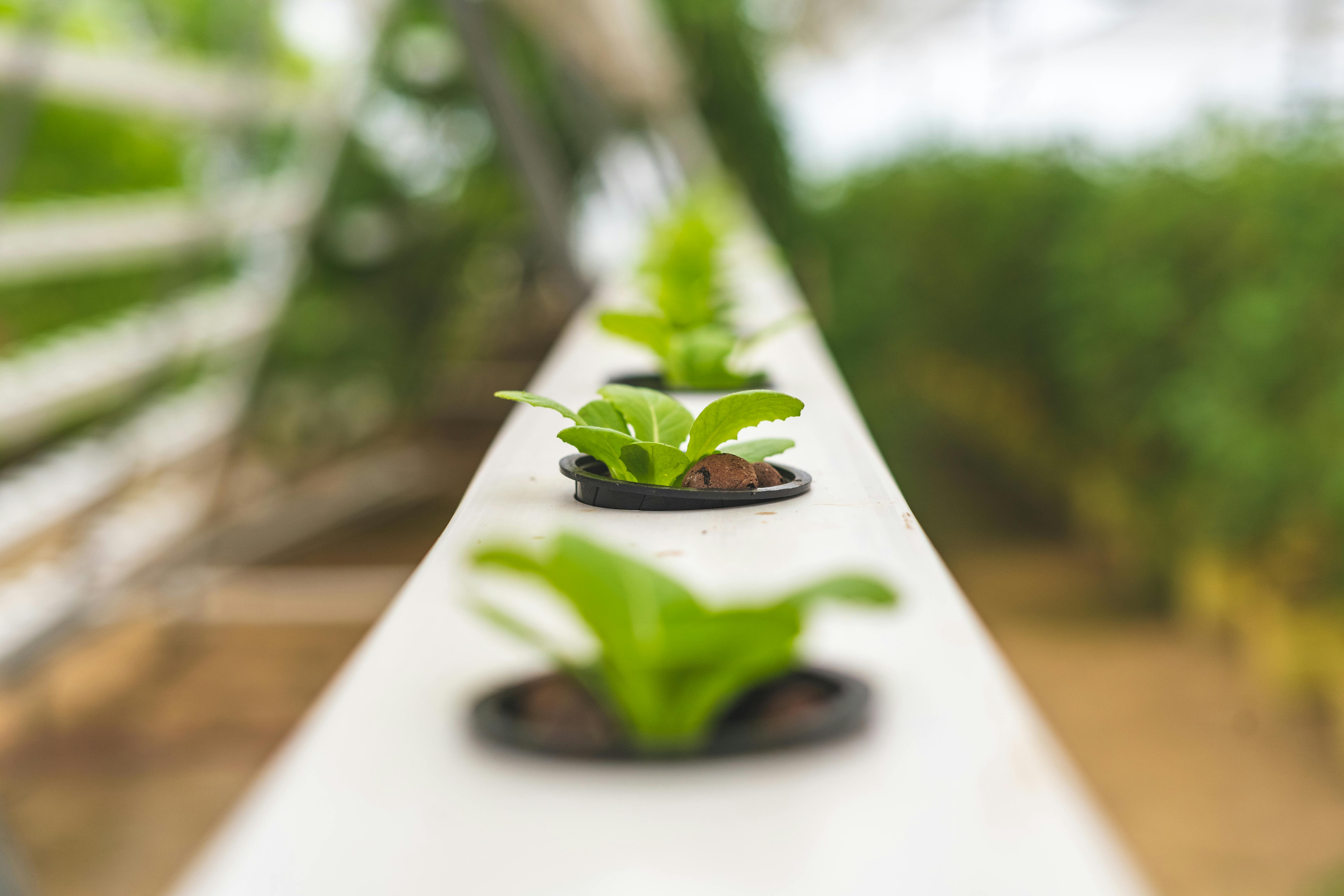
Sustainability and Efficiency in Hydroponic Farming
Hydroponics offers a sustainable and efficient approach to food production, minimizing resource waste and environmental impact while maximizing crop productivity. By reducing water usage, eliminating soil depletion, and decreasing the need for chemical inputs, hydroponic systems help conserve natural resources and promote eco-friendly agricultural practices. This makes hydroponic farming an attractive option for individuals looking to support sustainable food production methods and reduce their carbon footprint.
Environmental Benefits of Hydroponics
Some of the key environmental benefits of hydroponic farming include:
- Reduced water consumption and waste
- Lower use of chemical pesticides and fertilizers
- Minimal soil erosion and nutrient runoff
- Efficient land use and space optimization
By choosing hydroponically grown vegetables, you can contribute to a more sustainable and environmentally friendly food system, supporting practices that prioritize resource conservation and ecological stewardship.
Expanding Access to Fresh and Local Produce
Hydroponic growing systems offer the potential to increase access to fresh and locally grown produce in urban and remote areas where traditional farming may be limited or impractical. By utilizing vertical farming techniques and indoor cultivation spaces, hydroponic growers can maximize growing space and overcome challenges related to land availability and soil quality. This accessibility to fresh, locally sourced vegetables can help communities improve their food security, promote healthy eating habits, and reduce their dependence on imported produce.
Community Benefits of Hydroponic Farming
Hydroponic farming can benefit communities in several ways, including:
- Providing access to fresh, affordable vegetables
- Supporting local food production and economic development
- Reducing carbon emissions associated with long-distance food transportation
- Empowering individuals to grow their own food and connect with their local food system
By embracing hydroponic farming practices, communities can enhance food security, promote sustainable agriculture, and foster a sense of pride and connection to their food sources.
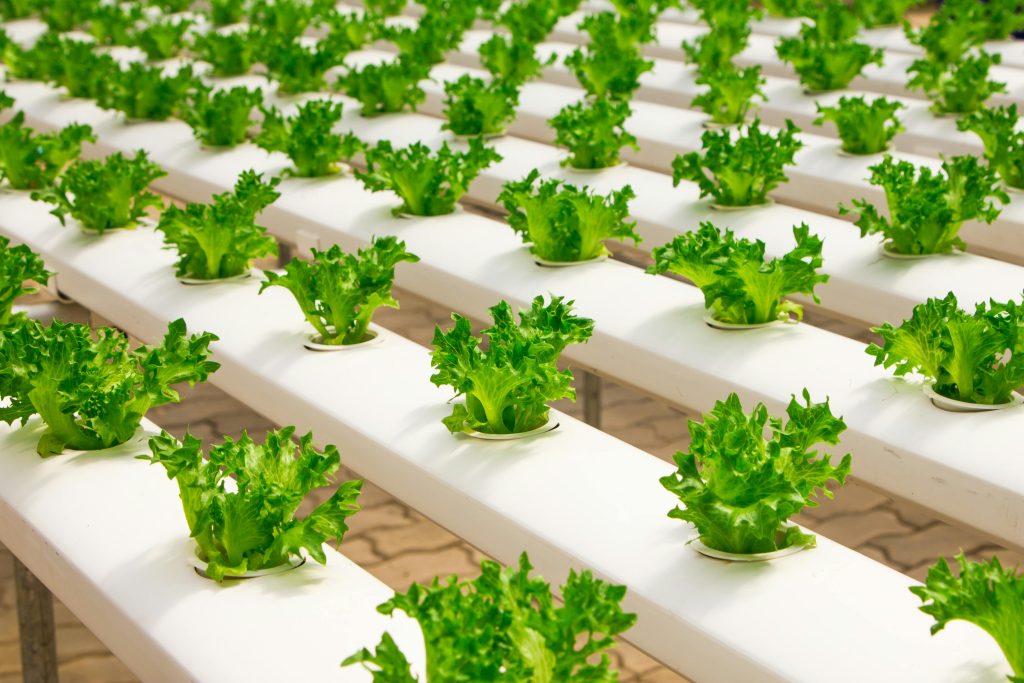
Practical Considerations for Starting a Hydroponic Garden
If you are interested in exploring hydroponic gardening and growing your own fresh vegetables at home, there are some practical considerations to keep in mind before getting started. From selecting the right system to choosing suitable crops for hydroponic cultivation, here are some tips to help you successfully embark on your hydroponic gardening journey.
Selecting a Suitable Hydroponic System
There are several types of hydroponic systems available, each with its own advantages and considerations. Some popular options include:
- Nutrient Film Technique (NFT) system
- Deep Water Culture (DWC) system
- Drip irrigation system
- Wick system
When choosing a hydroponic system, consider factors such as space availability, budget, and level of involvement required to maintain the system. Start with a system that aligns with your gardening goals and experience level, and remember that you can always expand and experiment with different systems as you gain more confidence and expertise.
Choosing Crops for Hydroponic Cultivation
Not all vegetables are well-suited for hydroponic cultivation, so it’s essential to choose crops that thrive in nutrient-rich water environments. Some popular vegetables that grow well hydroponically include:
- Lettuce and leafy greens
- Tomatoes and peppers
- Cucumbers and zucchini
- Herbs such as basil, mint, and parsley
Before selecting crops for your hydroponic garden, research their specific requirements and growth habits to ensure a successful harvest. Consider factors such as light exposure, temperature tolerance, and nutrient preferences when deciding which crops to include in your hydroponic setup.
Maintenance and Care of Hydroponic Systems
Once you have set up your hydroponic garden and selected your crops, it’s essential to establish a regular maintenance routine to ensure the health and productivity of your plants. From monitoring nutrient levels to preventing disease outbreaks, here are some tips for caring for your hydroponic system and maximizing its performance.
Monitoring Nutrient Levels
Regularly check and adjust the nutrient levels in your hydroponic system to ensure that plants receive the right balance of essential minerals for optimal growth. Invest in a quality nutrient solution and pH tester to maintain proper nutrient concentrations and acidity levels in the water, preventing nutrient deficiencies or imbalances that can hinder plant development.
Preventing Pest and Disease Issues
One of the advantages of hydroponic gardening is the reduced risk of pests and diseases compared to traditional soil cultivation. However, it’s essential to remain vigilant and proactive in preventing potential issues that can affect plant health. Implement preventive measures such as sterilizing equipment, maintaining clean growing conditions, and monitoring plant health for early signs of pests or diseases.
Pruning and Training Plants
To promote healthy growth and maximize yields, practice pruning and training techniques to shape and support your plants as they develop. Remove dead or damaged foliage, trim excessive growth, and provide structural support for vines or climbing plants to encourage proper growth patterns and enhance overall plant health.
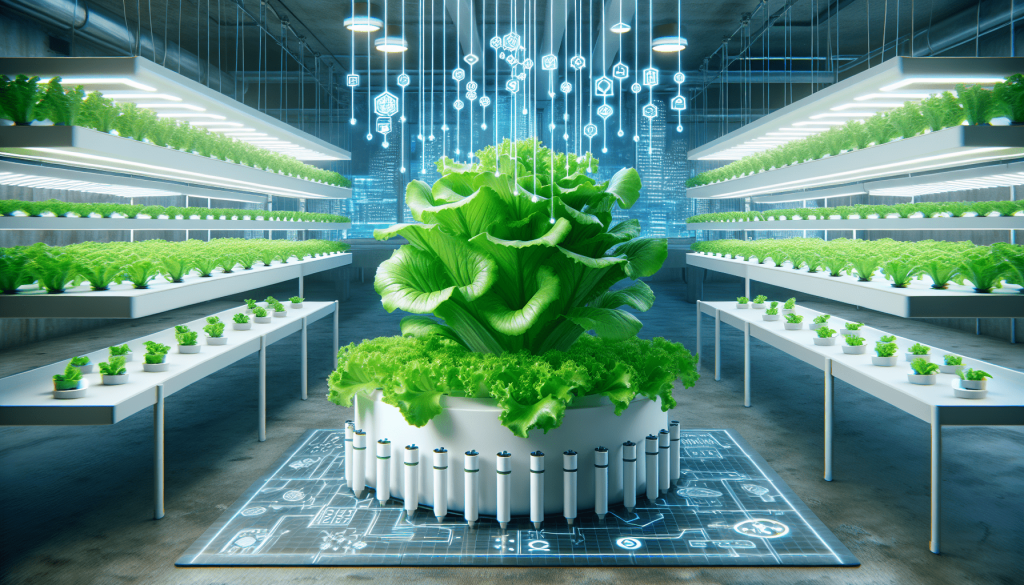
Growing Your Own Hydroponic Vegetables
By embracing the advantages of hydroponic growing systems and cultivating your own fresh vegetables at home, you can enjoy a sustainable and rewarding gardening experience that promotes health, wellness, and environmental stewardship. Whether you are a seasoned gardener or a first-time grower, hydroponics offers a dynamic and innovative approach to growing nutritious and flavorful produce all year round. Start your hydroponic gardening journey today and discover the exciting possibilities that await you in the world of hydroponic vegetable cultivation.




